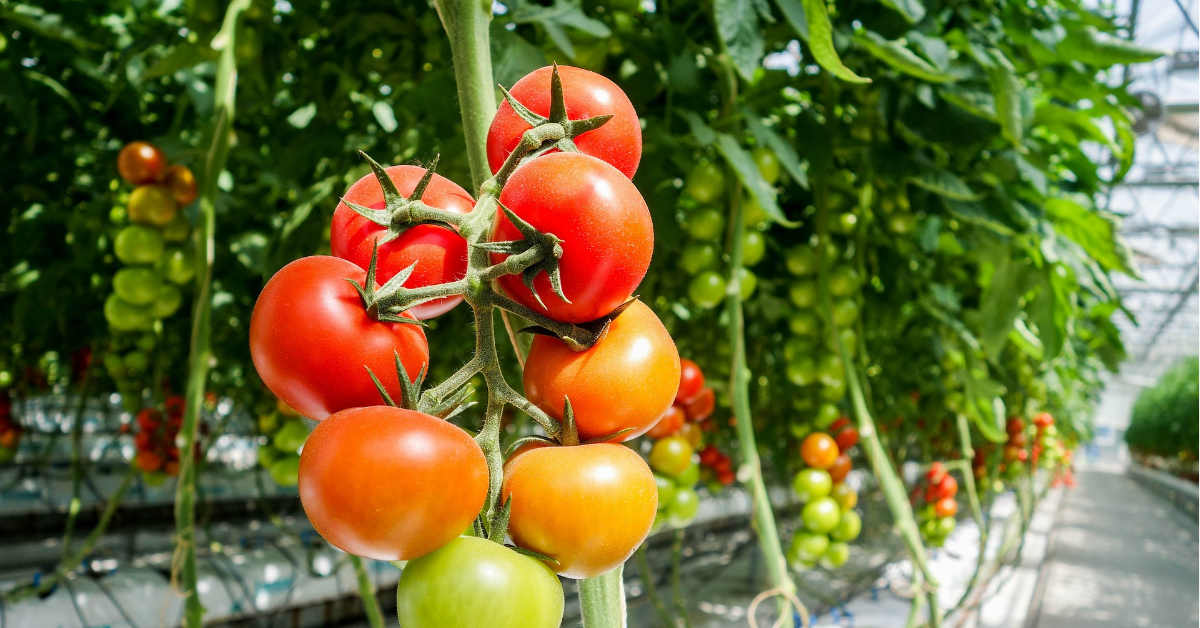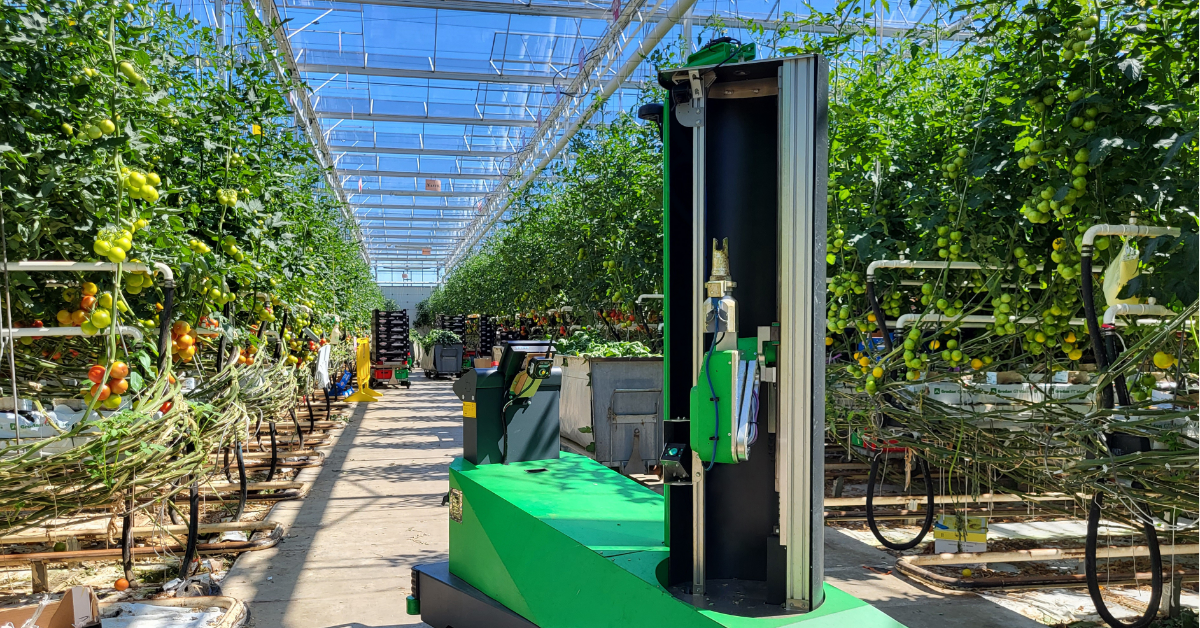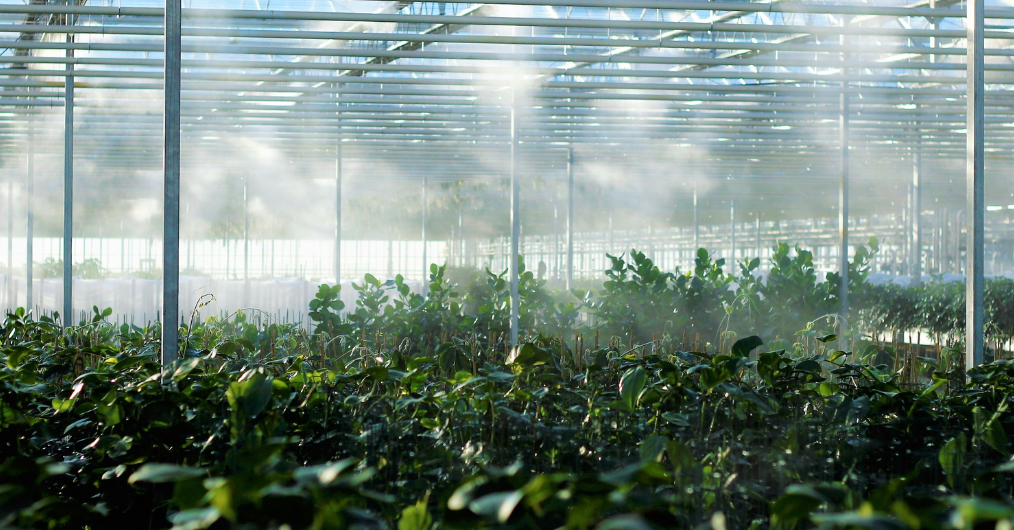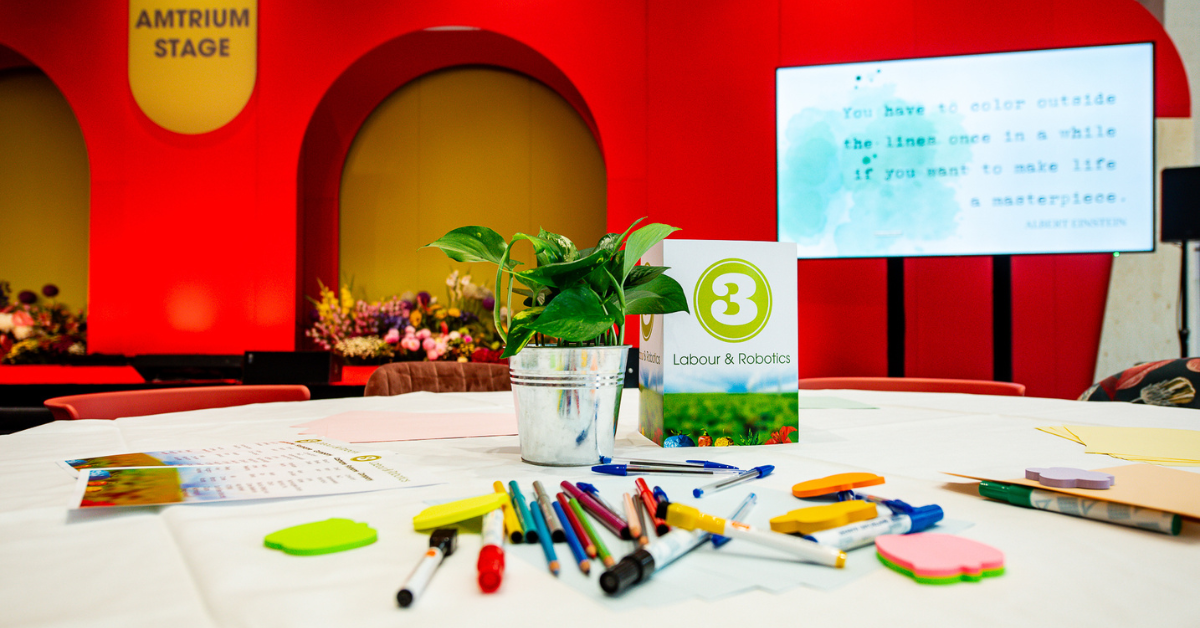Growing pesticide-free is about more than crop protection
GreenTech is shining a spotlight on the transitions happening in the world today. With numerous challenges such as climate change, water scarcity, and the need for more sustainable practices, the current food production systems are being greatly affected. In a series of articles, we will delve into the challenges and opportunities of these transitions in the horticulture industry. In this article, we asked a high-tech greenhouse vegetable grower and a producer of crop protection whether it is or will be possible to grow without pesticides.
Growing crops without the use of chemicals. Is it a utopia or closer than we think? At the initiative of FVO, which represents the five largest greenhouse vegetable growers' associations in the Netherlands, vegetable growers, suppliers and breeders are currently working together on profitable and completely pesticide-free cultivation of vegetables. Within the '100% green cultivation' project, an integral resilient cultivation system is sought that combines green crop protection with biological and technological solutions.
Burning platform
This season, a total of seven growing pilots started in practice. One of these pilots is taking place at tomato and pepper producer Frestia, a member of grower's cooperative Harvest House. The company grows snack peppers, pointed peppers and mini vine cherry tomatoes in the Netherlands and Portugal. The total area is 42 hectares, 3 hectares have been reserved for the pilot of '100% green cultivation'. “Crop protection is one of the 'burning platforms' within greenhouse vegetables, so it is a hot topic for the sector to work on in the coming years. That is why we started this pilot," says Frestia operational director Marc Zuidgeest. “As a company, we have been working on sustainability for some time, at ways to make plants more resilient and expand the biology in the greenhouse. We have been doing this for several years based on the philosophy of Plant Empowerment, but we also encountered challenges. The '100% green grown' project offers the opportunity to further deepen this.”
According to Zuidgeest, the project offers the greenhouse vegetable sector the opportunity to learn in practice and develop innovative ideas without fully bearing the financial risks. “We do bear the risk ourselves when it comes to the production we run, but the additional use of biology and technical resources for resilient cultivation can be increased within the project. That means you can try out more than usual.”
Preventive and curative
The project has four focus areas: resilient plants, resilient soil, climate, and water. This season the focus is mainly on crop protection, Zuidgeest says. “The most important question now is: how can we keep the pests under control? We have therefore drawn up a biology plan together to determine what we can do preventively to deal with pests in pepper cultivation, but also what we can do curatively if needed. We base this on the current biological control agents and green crop protection that we have at our disposal. But if curative intervention is necessary, which we of course try to prevent, there are also still some chemical agents available. Because ultimately, I want to achieve good production at the end of the season.”
But how do you determine what the turning point is to intervene in the greenhouse? “That is very difficult,” Zuidgeest acknowledges. “We have jointly described a method that shows the progression of a plague. How fast does a plague spread? It is difficult to make that concrete. It is one of the learning points we encountered in the first six months: how do you make this clear for everyone? Because one person thinks five spots of lice are a lot, while another thinks twenty spots are a lot. Experience still often comes into play, you often sense when it is time to intervene. But it is good if we get a clear picture of what is applicable to everyone.”
Quicker approvement
Zuidgeest emphasizes that the goal is not to grow without crop protection at all, but without chemicals. “We won't make it without good green crop protection products. We already needed chemistry at the beginning of this cultivation to tackle thrips, because green alternatives are not yet available. These products may have been developed already, but they are not yet approved in Europe. That is why it is extremely important that the admission of new green products is accelerated. Otherwise, it is simply not possible to grow completely green. In the rest of the world this happens much faster, but in Europe it takes far too long for new products to get approved.”
In addition to biology and green crop protection, the project also looks at technical developments. “It is a three-year project, and we are now in the first year. Next year we will certainly also start working on the technical possibilities. Insect mesh is often mentioned as a solution, but I personally think that much more attention should be paid to detection using camera technology and sensors. That way we can get a good idea of what is going on with the plant and also in the soil. Through accurate scouting and detection, you can receive signals much faster to take action. That is essential to ultimately be able to grow without chemicals.”
Biological balance
Growers, suppliers and breeders work closely together within the project. A good development, says Zuidgeest, who also regularly coordinates with other participants in the pilot. “This way you can learn from each other and help each other to move forward. It is an open project, so there is also contact between growers from different producer organizations. This mutual coordination is important to achieve success together.” Because, according to Zuidgeest, it is especially important that all parties involved get started and continue to work. “We can get quite far with biology already, but within the ecosystem in the greenhouse there are circumstances when this is not enough. At those moments we need green products to restore the biological balance and right now, they are simply not yet available enough. The government must therefore really take action to accelerate the admission of new products.”
BASF is originally a manufacturer of chemical crop protection products. In recent years, the company has been committed to greening its range of crop protection products. Wessel van Vliet, Crop Manager Greenhouse, Vegetables & Biologicals at BASF Netherlands, sees in practice that biological control agents work well preventively. “The disadvantage is that they attack only certain stages of a pest insect and are limited to certain temperature and light conditions. The use of green crop protection products is therefore important to help biological control agents.”
Handbrake
According to Van Vliet, it will be possible to grow completely without chemical crop protection products for a limited number of crops. “But if biological control agents in combination with green products cannot keep up with pest development, it is nice to have a handbrake at hand. Green products also do not work or work less well on a number of pests or they do not have a long-lasting effect on certain insects, such as bugs and aphids. So yes, I certainly think it is possible to grow without chemicals, but not for all crops and not under all conditions.”
Growers also suffer from pests that they previously did not have to deal with due to the loss or reduced use of chemicals, says Van Vliet. “Like cicadas and earwigs. A biological control agent is not always immediately available for these types of pests. Time is needed to gather knowledge and skills to control such a pest with biological means.”Hygiene importantVan Vliet believes that it all starts with the basics: company hygiene. “Do not open the greenhouse doors unnecessarily, reduce drafts, clean up leaf residues, etc. In addition, it is important to start with a low pest pressure and then continue to treat the crop consistently. Monitoring is very important as well when it comes to side pests. You want to avoid having to change your entire strategy because you are bothered by something you did not expect.” Spraying technique is also important, according to Van Vliet. “Green remedies are generally not systemic, which makes hitting the insect much more important than in the past.” To be able to grow without chemicals, more is needed than just green crop protection. “It requires a different approach from the grower. Start preventively, company hygiene, good conditions for biological control agents, good monitoring, timely adjustments, etc.”BASF’s product range has become greener in recent years. But the company has also been working on the supply of nematodes for years. “With this portfolio we are able to offer growers good support in controlling pests and therefore work towards chemical-free cultivation. Together with our distributors, we are taking major steps in greening horticulture. However, we are also convinced that chemistry is not necessarily bad for people, animals, and the environment. It's all about which molecule you select, as each molecule has its own properties. If we bring a new chemical onto the market in the coming years, it will always comply with the latest safety legislation and regulations.”Share your horticulture technology stories with us
Do you have an innovation, research results or an other interesting topic you would like to share with the international horticulture technology industry? The GreenTech website and social media channels are a great platform to showcase your stories!
Please contact our Brand Marketing Manager Murkje Koopmans.
Are you an GreenTech exhibitor?
Make sure you add your latest press releases to your Company Profile in the Exhibitor Portal for free exposure.
Have exclusive horticulture technology news delivered to your inbox
The GreenTech monthly newsletter brings you the latest exclusive horticulture technology news and updates about our global horticulture technology trade shows and events.
Join over 32,000 of your peers and receive:
☑ Exclusive commentary from industry leaders
☑ The latest news from the GreenTech team
☑ Stay up to date with all the latest news about our events




